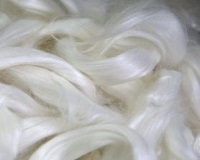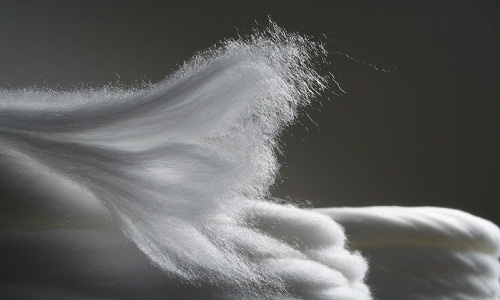"A new report by Changing Markets Foundation on sustainability has yet again brought fast fashion retailers under scanner as the biggest pollutants. The report concludes that many firms are still not doing enough to ensure sustainability of their textile supply chains. While there has been bold leadership from some retailers, a large part of the industry has still not demonstrated willingness to engage on the issue or set out policies on viscose production. These include: Burberry, Ikea, Missguided, Gucci, and Prada, as well as supermarkets such as Sainsbury's, Lidl, Morrisons and Asda."
 A new report by Changing Markets Foundation on sustainability has yet again brought fast fashion retailers under scanner as the biggest pollutants. The report concludes that many firms are still not doing enough to ensure sustainability of their textile supply chains. While there has been bold leadership from some retailers, a large part of the industry has still not demonstrated willingness to engage on the issue or set out policies on viscose production. These include: Burberry, Ikea, Missguided, Gucci, and Prada, as well as supermarkets such as Sainsbury's, Lidl, Morrisons and Asda.
A new report by Changing Markets Foundation on sustainability has yet again brought fast fashion retailers under scanner as the biggest pollutants. The report concludes that many firms are still not doing enough to ensure sustainability of their textile supply chains. While there has been bold leadership from some retailers, a large part of the industry has still not demonstrated willingness to engage on the issue or set out policies on viscose production. These include: Burberry, Ikea, Missguided, Gucci, and Prada, as well as supermarkets such as Sainsbury's, Lidl, Morrisons and Asda.
Viscose is a soft semi-synthetic fibre commonly used to make lighter clothing and is the third most-used fibre in the textiles industry after polyester and cotton. It is created from cellulose that is chemically extracted from trees, a process that requires hazardous chemicals. A number of major producers have been accused of failing to follow adequate health and safety processes, leading to pollution from production processes impacting surrounding water and soils.
Some well-known UK fashion retailers are sourcing viscose fabric from two factories in Indonesia and India, which have been accused of polluting their local environments and harming human health with toxic chemicals. As per Changing Markets Foundation, if managed properly, viscose has the potential to be a largely sustainable fibre as it is made from plant matter and is biodegradable.
which have been accused of polluting their local environments and harming human health with toxic chemicals. As per Changing Markets Foundation, if managed properly, viscose has the potential to be a largely sustainable fibre as it is made from plant matter and is biodegradable.
Path to sustainability
Changing Markets Foundation has set up a roadmap for sustainable viscose sourcing. Seven brands have signed up so far and started engaging with their supply chains on how to guard against the risk of viscose-related pollution. Inditex, Asos, Marks & Spencer, H&M, Tesco, Esprit, and C&A are the first signatories. Next has reportedly indicated plans to commit to the roadmap, which sets out best available techniques for viscose production in the near future.
Carmen Chan, Senior Sustainability Manager-F&F Clothing line, Tesco, says while she understood the complexity of the environmental challenge of viscose, it was not possible to tackle it alone. Collaboration is the key to help transform the textile and clothing industry. M&S has stated it will not source from any man-made cellulosic fibre suppliers which do not transition to a closed-loop manufacturing system by 2023-25, explaining such a system should recycle the majority of chemicals used during the production and prevent the process from negatively impacting human health and environment.
Phil Townsend, Sustainable Raw Materials Specialist, M&S says the roadmap was an important step forward in reducing environmental impact of viscose for making clothes. However, the industry needs to work together to create positive change and achieve the Changing Market Foundation's goals. Ikea has stated that it is working towards a goal that all Made Cellulose fibres shall come from responsibly sourced wood and be produced having minimum environmental impact to land, air and water.
The two largest viscose producers in the world, Austria's Lenzing and India's ABG, have both now committed to making all their sites meet EU Ecolabel requirements for production. In China, the country's 10 largest producers have joined together to form the Collaboration for the Sustainable Development of Viscose and are developing a 10-year roadmap for improvement, the report said.
Many more to achieve…
Natasha Hurley, Campaign Manager, Changing Markets Foundation says the onus was on manufacturers and their customers to turn commitments to improve their supply chains into detailed plans and ensure transparent reporting of their performance, including complaints and grievances. After many years of complacency from fashion brands and producers with regard to the environmental impacts of viscose manufacturing, the tide is finally beginning to turn towards more responsible production methods," she said. But the unlikely bedfellows of luxury brands and discount retailers continue to ignore an issue that is blighting people’s lives and the environment. What's more, most luxury fashion brands are failing to publicly disclose supply chain information. This is unacceptable. It’s time for them to wake up to transparency and sustainable fashion.












